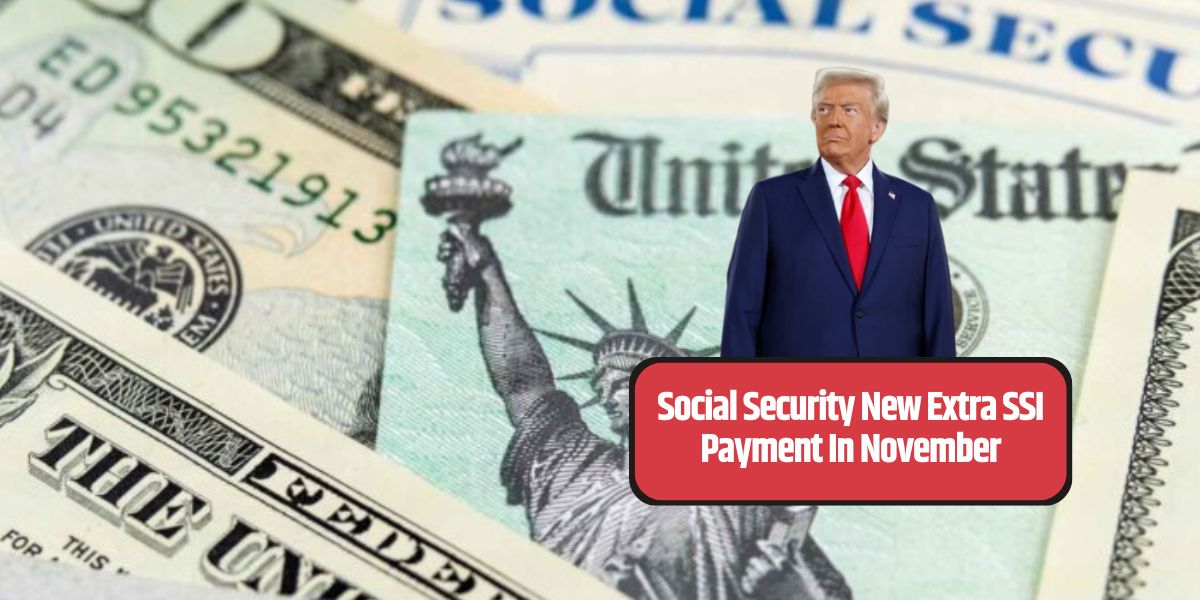Each month, Social Security typically provides one Supplemental Security Income (SSI) payment to eligible beneficiaries, but the scheduling for November and December may lead some recipients to see an extra deposit in November. This scheduling quirk could surprise some elderly Americans if they aren’t aware of the adjusted payment schedule.
How the Social Security Administration Schedules SSI Payments
To handle the significant volume of payments, the Social Security Administration (SSA) sets a payment schedule annually, covering all Social Security and SSI benefit disbursements. For the 7 million SSI beneficiaries who rely on these payments, November is unique in that it includes an extra payment day due to the calendar’s structure. Here’s a look at the planned payment schedule for SSI recipients and those also receiving Social Security retirement benefits:
- Friday, November 1: SSI beneficiaries will receive their regular November payment.
- Friday, November 29: SSI beneficiaries will receive an early payment for December, as December 1 falls on a Sunday.
This structure means that some SSI recipients will receive two payments in November. Those who also receive Social Security retirement benefits typically receive their payment on the third of each month. However, since November 3 is a Sunday, these beneficiaries will also get their combined Social Security and SSI payment on November 1.
Social Security Retirement Payments Schedule
For retirees receiving Social Security benefits based on their date of birth, the payment dates remain on the second, third, or fourth Wednesday of each month:
- Wednesday, November 13: Beneficiaries born from the 1st to the 10th of the month receive payment.
- Wednesday, November 20: Beneficiaries born from the 11th to the 20th of the month receive payment.
- Wednesday, November 27: Beneficiaries born from the 21st to the end of the month receive payment.
For individuals who started receiving Social Security before May 1997 or who receive both SSI and Social Security benefits, their regular benefit checks arrive at the beginning of each month, which in November will be on November 1.
Upcoming Cost-of-Living Adjustment (COLA) for 2025
The SSA recently announced a 2.5% cost-of-living adjustment (COLA) for Social Security benefits starting in January 2025. The COLA aims to keep benefits in line with inflation, and the average Social Security recipient can expect their monthly payment to rise by about $50, bringing the typical benefit amount to around $1,976.
The schedule for the COLA increase is as follows:
- January 3, 2025: Beneficiaries who began receiving Social Security before May 1997 or receive both Social Security and SSI payments will see the new COLA applied.
- Wednesday, January 8: Beneficiaries born between the 1st and 10th of the month receive their adjusted payment.
- Wednesday, January 15: Beneficiaries born between the 11th and 20th receive their adjusted payment.
- Wednesday, January 22: Beneficiaries born between the 21st and the end of the month receive their adjusted payment.
- December 31, 2024: SSI beneficiaries will receive their January payment early, which will reflect the new COLA.
Key Takeaways for SSI and Social Security Beneficiaries in November
For many SSI recipients, the November payment schedule includes two SSI deposits. Additionally, those who receive both SSI and Social Security will see their monthly check arriving on November 1 due to the weekend schedule. Finally, the COLA increase will take effect in January, with specific payment dates based on beneficiaries’ birth dates.
FAQs:
Will SSI recipients receive two checks in November?
Yes, SSI recipients will receive two checks in November due to scheduling adjustments for December’s payment.
When will the COLA increase be reflected in payments?
The COLA adjustment will appear in January 2025 payments, with SSI recipients seeing the adjustment slightly earlier, on December 31, 2024.
Why are payments scheduled differently at the end of the year?
The SSA adjusts payments when the first of the month falls on a weekend or holiday, ensuring beneficiaries receive payments without delays.




